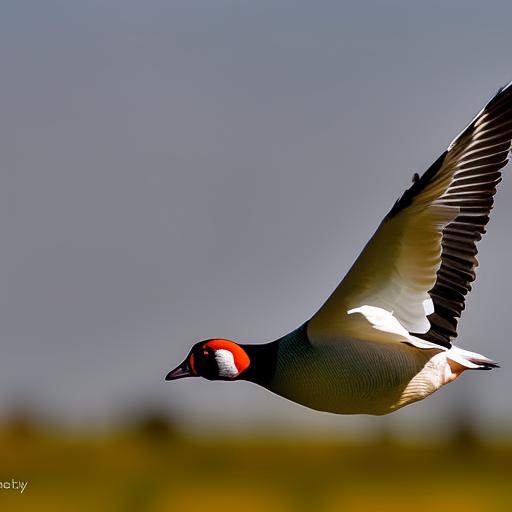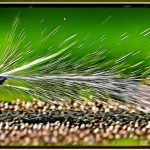Geese invasion has become a growing concern in many public spaces, causing problems for both people and the environment. These large birds are attracted to areas with open water, grassy fields, and ample food sources, making parks, golf courses, and other public areas prime targets for their settlement. While geese may seem harmless, their presence can lead to a range of issues such as aggressive behavior towards humans, damage to property, and contamination of water bodies. It is important to find effective ways to deter geese from these areas in order to maintain a safe and clean environment for everyone.
Key Takeaways
- Geese invasion can cause damage to property and pose health risks.
- Understanding geese behavior and habitat can help in finding effective solutions.
- Natural ways to keep geese away include planting certain vegetation and using decoys.
- Repellents like sprays and noise machines can also deter geese.
- Installing physical barriers like fences and netting can prevent geese access.
Understanding geese behavior and habitat
To effectively address the issue of geese invasion, it is crucial to understand their behavior and habitat preferences. Geese are social animals that prefer to live in large groups called flocks. They are attracted to areas with open water, such as ponds or lakes, where they can swim and find food. Geese also prefer areas with short grass or mowed lawns, as this provides easy access to food sources and clear visibility for predators. Understanding these preferences can help in identifying areas that are more likely to attract geese and implementing appropriate deterrent strategies.
Natural ways to keep geese away
One of the most effective ways to discourage geese from settling in an area is by using natural methods. Planting certain types of vegetation can make an area less attractive to geese. Tall grasses or shrubs can create barriers that make it difficult for geese to access open spaces. Additionally, planting vegetation that is unpalatable to geese, such as ornamental grasses or plants with strong odors, can deter them from settling in an area.
Another natural method is the use of decoys. Geese are territorial animals and will avoid areas where they see other geese already present. Placing decoys in strategic locations can create the illusion of a populated area, discouraging geese from settling there. It is important to regularly move the decoys to maintain their effectiveness.
Using repellents to deter geese
Repellents can be an effective tool in deterring geese from certain areas. There are various types of repellents available, including sprays and granules. These repellents typically contain substances that emit strong odors or tastes that are unpleasant to geese. When applied to grass or other surfaces, they create a barrier that geese will avoid. It is important to follow the instructions provided by the manufacturer when using repellents and to reapply them as needed.
Installing physical barriers to prevent geese access
Physical barriers can be an effective way to prevent geese from accessing certain areas. Fences or netting can be installed around ponds or other water bodies to create a barrier that geese cannot easily cross. It is important to ensure that the barriers are tall enough and properly secured to prevent geese from flying over or going under them. Additionally, installing netting over grassy areas can make it difficult for geese to access food sources, discouraging them from settling in the area.
Implementing sound and light deterrents

Sound and light deterrents can be used to scare geese away from certain areas. Noise-making devices, such as propane cannons or ultrasonic devices, emit sounds that are unpleasant to geese and can deter them from settling in an area. Flashing lights can also be effective in scaring geese away, as they disrupt their sense of security. These deterrents should be used strategically and rotated periodically to maintain their effectiveness.
Using trained dogs to scare geese away
Trained dogs can be highly effective in scaring geese away from certain areas. Border collies, in particular, have been successfully used for goose control. These dogs are trained to chase and harass geese, creating a hostile environment that geese will avoid. It is important to work with a professional dog handler who has experience in goose control to ensure the safety and effectiveness of this method.
Creating a hostile environment for geese
Creating a hostile environment for geese can be an effective long-term strategy for deterring them from settling in an area. This can be done by removing food sources, such as spilled birdseed or unsecured garbage, which attract geese. Additionally, making the area less hospitable by regularly mowing grass, removing nesting materials, and using deterrents such as motion-activated sprinklers can discourage geese from settling in the area.
Seeking professional help for geese control
In some cases, seeking professional help for geese control may be necessary. Wildlife control companies have the expertise and resources to effectively address geese invasion issues. They can assess the situation, develop a customized plan, and implement appropriate strategies to deter geese from public spaces. Professional help may be particularly beneficial in cases where other methods have been unsuccessful or when dealing with large-scale infestations.
Conclusion and summary of effective strategies for keeping geese away
In conclusion, geese invasion in public spaces can cause a range of problems and it is important to find effective ways to keep them away. Understanding geese behavior and habitat preferences is key to implementing successful deterrent strategies. Natural methods such as planting certain types of vegetation or using decoys can be effective in discouraging geese from settling in an area. Repellents, physical barriers, sound and light deterrents, trained dogs, and creating a hostile environment are all additional strategies that can be used. In some cases, seeking professional help may be necessary to effectively address geese invasion issues. By implementing these strategies, we can create safe and clean public spaces that are free from the problems caused by geese invasion.
Geese Control: How to Keep Geese Away from Your Property is a must-read article for anyone dealing with the nuisance of geese invading their space. Whether you have a backyard garden or a chicken coop, these feathered intruders can cause damage and create a mess. This informative piece provides effective strategies and practical tips to deter geese from your property, ensuring a peaceful and clean environment for you and your chickens.
FAQs
What are some effective ways to keep geese away?
Some effective ways to keep geese away include using decoys, installing fencing or netting, using noise deterrents, and applying repellents.
What are some natural repellents that can be used to keep geese away?
Some natural repellents that can be used to keep geese away include planting certain types of vegetation, such as tall grasses or prickly bushes, and using essential oils, such as peppermint or grapefruit.
Why is it important to keep geese away?
It is important to keep geese away because they can cause damage to property, create unsanitary conditions, and pose a safety risk to humans, particularly in areas where they may become aggressive during nesting season.
What are some common areas where geese may be a problem?
Geese may be a problem in areas such as parks, golf courses, residential neighborhoods, and commercial properties with large lawns or bodies of water.
Are there any laws or regulations regarding the removal of geese?
Yes, there are laws and regulations regarding the removal of geese, particularly in regards to migratory birds. It is important to check with local and federal authorities before taking any action to remove geese.
Meet Walter, the feathered-friend fanatic of Florida! Nestled in the sunshine state, Walter struts through life with his feathered companions, clucking his way to happiness. With a coop that’s fancier than a five-star hotel, he’s the Don Juan of the chicken world. When he’s not teaching his hens to do the cha-cha, you’ll find him in a heated debate with his prized rooster, Sir Clucks-a-Lot. Walter’s poultry passion is no yolk; he’s the sunny-side-up guy you never knew you needed in your flock of friends!







